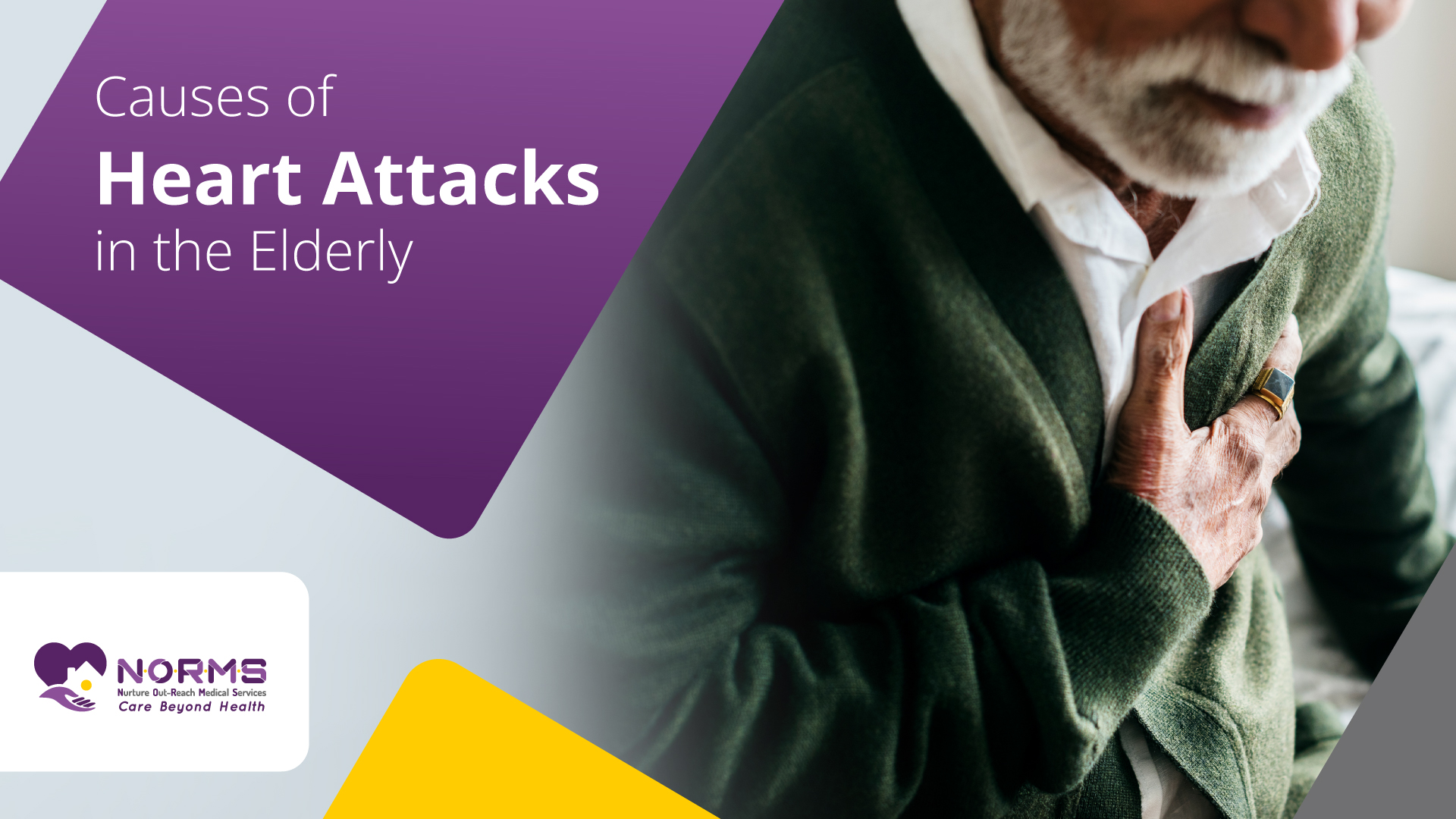
During adulthood, especially in elderly people, it is crucial to appreciate the symptoms of a heart attack to respond promptly. Heart attacks in old people tend to present with subtle or unusual manifestations, unlike the classic signs. Having such unusual symptoms is vital for timely recognition and necessary measures. This piece of writing addresses the specific signs of heart failure in older persons who require rapid diagnostic tools for quick treatments.
Heart attack in the elderly differs from a young person’s signs. Among older adults, chest discomfort may be manifested as pressure, a sense of tightness, or pain. Nevertheless, the manifestation can be more subtle like fatigue, shortness of breath, or general malaise, in contrast to acute chest pain.
Such unique symptoms of nausea, dizziness and abdominal distress can confound a precise diagnosis in the elderly. Other than that, a doctor could also face barriers in communication. This is because old people often struggle to communicate their symptoms or even underplay their severity.
Symptoms of a heart attack in the elderly may be affected by the process of ageing and other health problems that the elderly may have. Early detection of these conditions would be paramount as they might change how one experiences symptoms and require immediate relief.
Understanding the differences in heart attack symptoms in elderly women is important for prompt recognition and correct diagnosis. It is crucial to raise awareness and educate this population group about this non-traditional type of symptoms because this will help to diagnose these heart attacks early on and thus, reduce the chances of a fatal outcome.
Though elders are full of knowledge and insights, they have health issues. They remain susceptible to stress due to timely recognition and action to maintain their health status. Here’s why it’s essential:
Most elders may sometimes ignore the signs and pains they feel due to age. However, symptoms can be detected earlier, allowing early intervention. Prompt detection of health problems enables successful treatment and recovery.
Prompt steps help seniors have a quality life. This assists in treating health complaints appropriately before they worsen and hinder day-to-day work and autonomy.
Untreated or undetected health problems can cause isolation. Withdrawing from elders may be because of discomforts or social activities they can’t participate in. This way, isolation can be prevented through early recognition and intervention.
Preventing early onset conditions may keep them from getting worse and make subsequent treatments less costly. This benefits elders’ wellness and reduces pressure on families and healthcare systems.
Early recognition empowers the elders as they feel in control of their health. It fosters independence and empowerment when they actively participate in their well-being.
This enables elders to seek information about common health challenges that are likely to strike and then take preventive measures. Such clear descriptions of hypertension, diabetes, and osteoporosis, among many other conditions, can motivate preventive actions.
Such kind of gentle exercises and physical activities adapted specifically for elderly people can considerably improve their general state of health. Mobility and strength exercises can reduce the risk of developing age-related health problems.
It is imperative to educate elders on how nutrition influences health. An appropriate diet, enough water and the significance of vitamin and mineral supplements ensure they properly fuel their bodies.
Early detection is facilitated by encouraging regular check-ups. Elders, therefore, should have regular medical checks for any emerging health problems and nip them in the bud before they get out of control.
Recognising the importance of mental health in older persons becomes necessary. Social engagement, emotional support, and prompt addressing of mental health issues are essential to overall wellness.
In case such symptoms of a heart attack arise in elderly persons, seek immediate medical attention as they may be indicative of a heart attack. For instance, these may be chest discomfort, shortness of breath, pain in the chest, arms, back, neck, jaw, and stomach associated with nausea, lightheadedness, unexplained fatigue, etc.
It is advisable to seek medical help even for mild or intermittent symptoms lasting more than a few minutes. Thus, if one suspects a possible heart attack in an old patient, then immediate help should be addressed since early treatment influences the course of the disease and the well-being of the patient.
Recognition is crucial for early acts by recognising the symptoms of a heart attack in elderly patients. Although classic signs like chest pain might not always appear in the same manner among the elderly, paying attention to more subtle signs such as shortness of breath, fatigue, and even indigestion is essential. A speedy response to such symptoms will significantly impact the result, saving lives and reducing the extent of the incident. These atypical symptoms must be pointed out and explained to the elderly, their caregivers and the local community. This will help them seek early medical attention and improve their prognosis and general wellbeing.
Occasionally, a heart attack manifests itself in the upper back or between the shoulder blades pain. Other symptoms, such as chest pains, difficulty breathing, and nausea, should also be noted.
Patients may have chest pain, shortness of breath, nausea, lightheadedness, and pain in arms, back, jaw etc. All these symptoms may seem different, but any unexplained and persistent discomfort should attract urgent medical care.
These may include fatigue, indigestion, shortness of breath, chest discomfort, and pain in the arms, neck, and jaws. These symptoms may not be painful, but they require immediate medical attention, especially if they persist.